- Home
- slideshows
- miscellaneous
- Here are the do's and don'ts for going outside under the different lockdown or shelter-in-place restrictions as countries across the world battle the coronavirus
Here are the do's and don'ts for going outside under the different lockdown or shelter-in-place restrictions as countries across the world battle the coronavirus
"Lockdown" is not an official public health term but has come to refer to a number of situations.

The most severe lockdown is in Wuhan, China, where the virus originated in December.
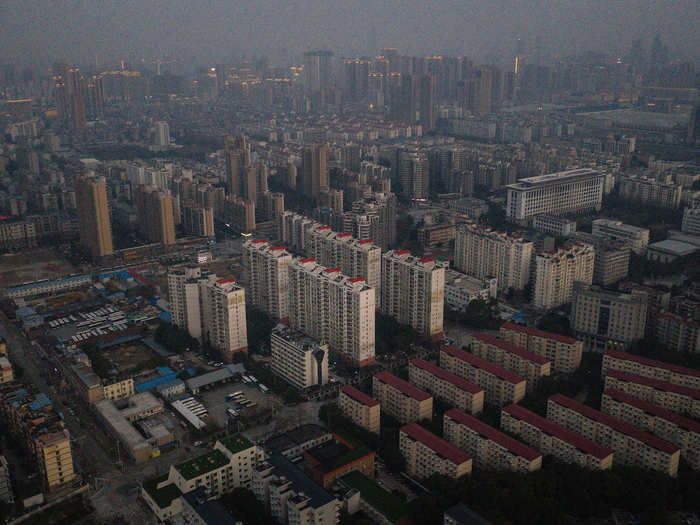
The city was placed under a lockdown on January 23, ordering the city's 11 million residents to stay confined in their homes as Business Insider's Bill Bostock reported.
Only one person from each household can venture outside every three days to gather essentials, like food and medical supplies. Food and medicine is delivered to homes in some cases, and armed police officers patrol the streets to ensure compliance.
The city is nearing the end of its lockdown period, but some locals and health experts are skeptical that the virus is contained. There are fears of a "boomerang effect," with the virus exhibiting a resurgence once residents aren't confined to their homes any longer.
India's lockdown is also one of the strictest. It will enforce a "total ban of coming out of your homes," according to Indian Prime Minister Narendra Modi.
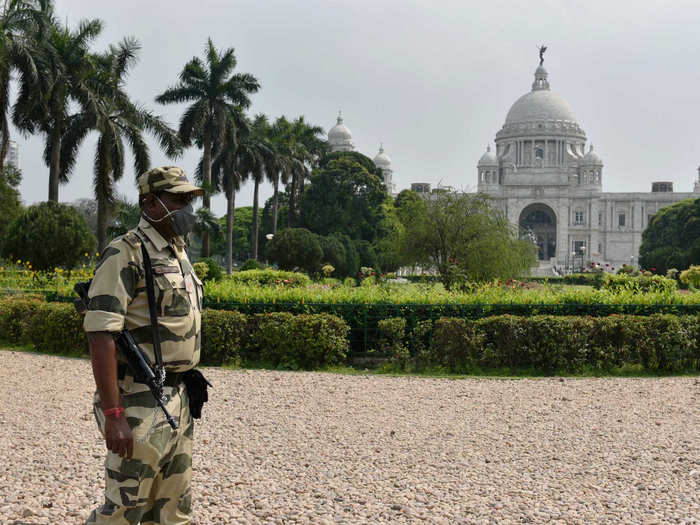
Modi imposed a 21-day crackdown on the country and its 1.3 billion residents.
"Every state, every district, every lane, every village will be under lockdown," Modi said according to The New York Times.
All nonessential businesses are closed. Hospitals and medical centers will be open.
Lockdowns currently in place in Italy and France aren't as severe as Wuhan's, but you do need to carry paperwork on you proving that you're cleared to be outside your home.
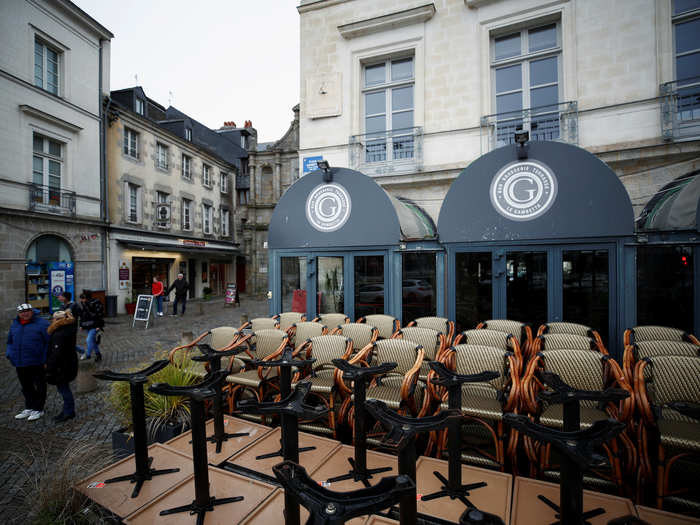
Business operations and travel have been suspended, except for essential service workers. But residents are still allowed more flexibility compared to people under lockdown in Wuhan.
If you are in France, you need to carry special certification on your person just to leave your home, even if the trip is for an essential need like groceries or to take a pet to the bathroom.
"For any outing outside the home, you must have a certificate on your honor [sic] specifying the reason for the trip," reads the translation of the French Government website."If you do not respect these rules, you risk a fine."
Italy has been under lockdown since March 10. Residents here also need a certificate to go outside, even if it's for a bike ride or a walk.
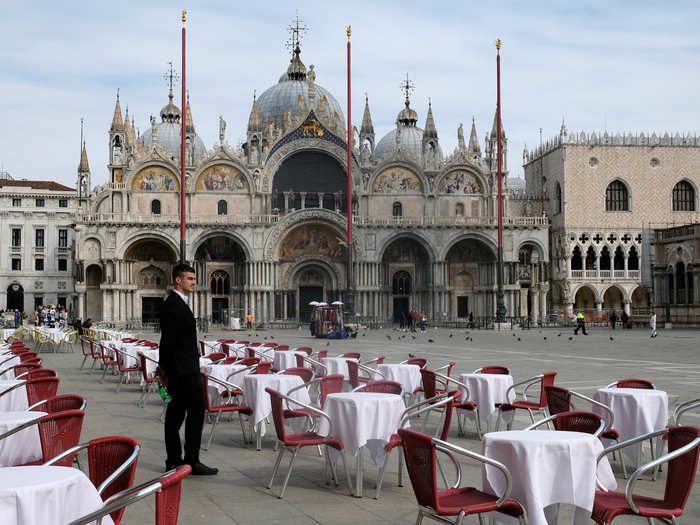
State and local police forces in Italy provide paperwork to do so, according to the Italian Government website.
Civil and religious ceremonies, such as funerals, are suspended, though residents are allowed to enter places of worship as long as it's not en masse and there is space to practice social distancing. Only grocery stores and pharmacies remain open to the public.
Visiting or dining with relatives outside your household is not allowed since nonessential socializing isn't considered a necessary movement and is prohibited. People also aren't allowed to access public parks, play areas, and public gardens. If you're an Italian returning from a trip, you can travel home. But if you want to travel by plane, train, or car, you'll need proof of an essential reason to do so.
The UK announced Tuesday that it was entering a nationwide lockdown. Residents will only be allowed one form of exercise a day outside of their homes.
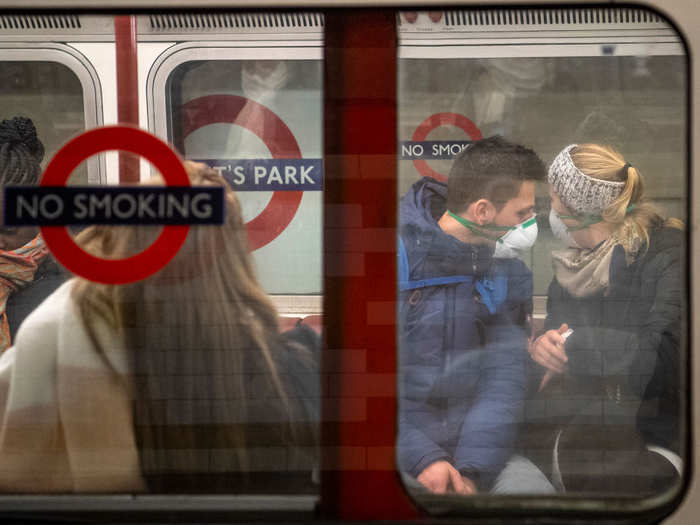
People can seek medical care, food, and other necessities, but are asked to do so as infrequently as possible. Only essential travel is allowed for workers in industries deemed essential.
People cannot visit places of worship, weddings and baptisms are banned, and nonessential businesses and playgrounds are closed. Gatherings of more than two people that don't live together are banned as well.
Police will ensure compliance, with on-the-spot fines in place ranging from the equivalent of $35 to $1,178 for those who violate restrictions.
The lockdown was announced after much of the general public took to public spaces en masse over the weekend despite official guidance advising them to stay home. It will last for up to six months.
A study places the UK less than two weeks away from experiencing a coronavirus outbreak as bad as Italy's.
Other nations implementing lockdowns include Jordan, Argentina, Malaysia, and Spain.
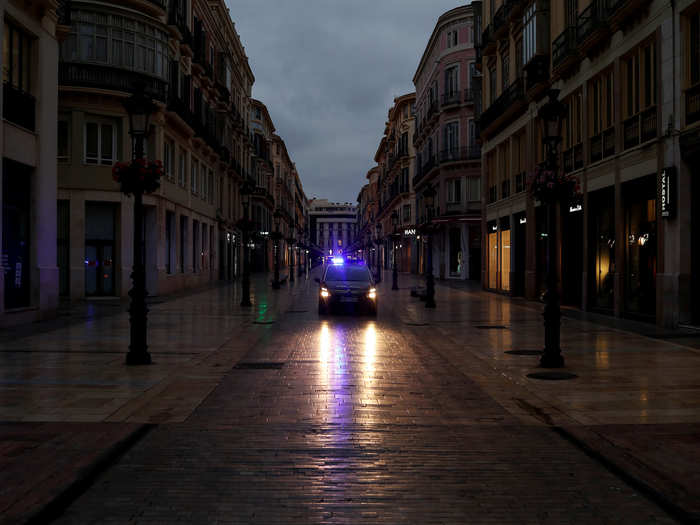
And again, the specific restrictions of each lockdown vary from place to place.
You can read a full list of countries with restrictions here.
While some nations are calling their situation a lockdown, others have used shelter-in-place orders to direct residents to remain indoors as much as possible.
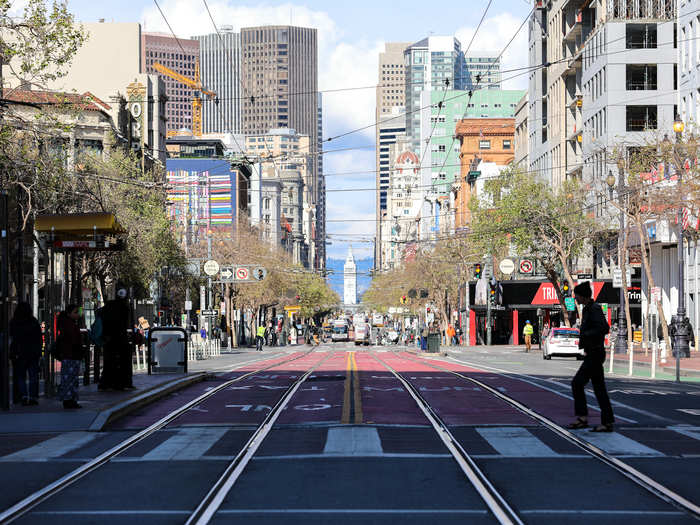
The term is usually used to direct people to seek protection inside their homes in the event of a natural threat, like a tornado or storm.
San Francisco, California, was one of the first cities to do this on March 17.

Stay-at-home orders are essentially the same thing. California was the first state in the US to issue a statewide stay-at-home order on March 19 that Gov. Gavin Newsom said would last for at least 8 weeks.
Since then, states including Illinois, Indiana, Louisiana, Maryland, Massachusetts, Oregon, West Virginia, and Wisconsin have also implemented similar measures.
Connecticut implemented its "Stay Safe. Stay Home" order. Ohio entered a period of "stay at home" on March 22. New York's "New York State on PAUSE" and Michigan's "Stay Home, Stay Safe" orders went into effect on March 23.
They all mean the same thing: stay home as much as you can to minimize contact with others to slow the spread of the virus.
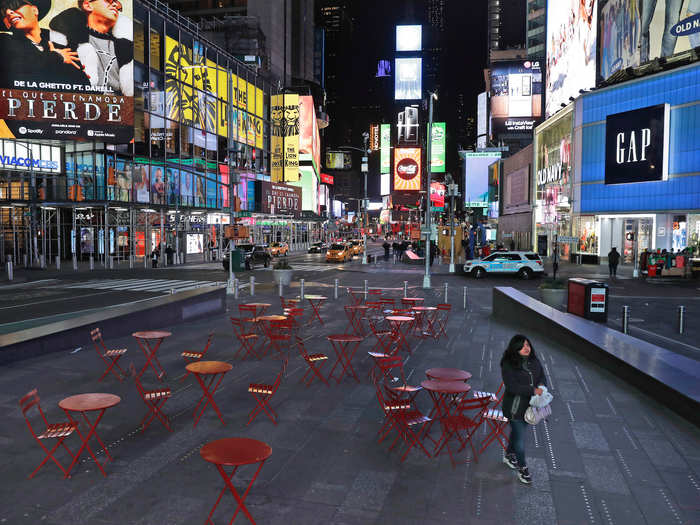
These are mandatory orders, but residents are allowed to leave their homes for essential needs, like buying groceries. People also don't need to carry paperwork on them to prove to officials that they can be outside.
Like lockdowns, each locale instituting a stay-at-home or shelter-in-place order can dictate specific restrictions.
These orders also typically spell the closure of nonessential businesses, like bars, nightclubs, and dine-in restaurants.
Curfews are not widely enforced yet in the US, though the Hawaii county of Kaua'i requires residents to stay inside from 9 p.m. to 5 a.m. South Fulton, Georgia is also requiring residents to stay in their homes between 9 p.m. and 7 a.m. except to perform essential services.
Fines or imprisonment could be issued if residents violate them, but officials can decide how strictly they will enforce.
In San Francisco, for example, the city is relying on resident compliance instead of stringent law enforcement of the order.
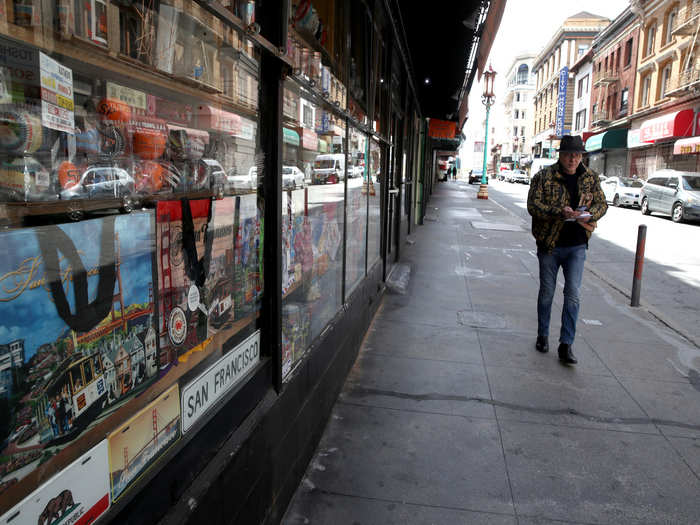
Like in Italy, house visits and dinner parties mixing members of different households are not allowed, unless you are visiting a sick relative.
You're allowed to make trips to the bank, laundromat, grocery store, farmers markets, hardware stores, and can order food for pickup or delivery from restaurants since dining in is banned.
You can use a ride-sharing service or public transit, but only for an essential purpose such as to the grocery store. Hair and nail appointments at salons are banned. Bars, gyms, and fitness studios are closed.
Residents are allowed to go for a walk outside as long as they keep six feet between themselves and anyone who doesn't live in their household. Unlike in Italy, public parks in San Francisco are open for such excursions.
But Mayor London Breed has threatened to close public parks after mass outings were made during the first weekend of the shelter-in-place order in San Francisco.
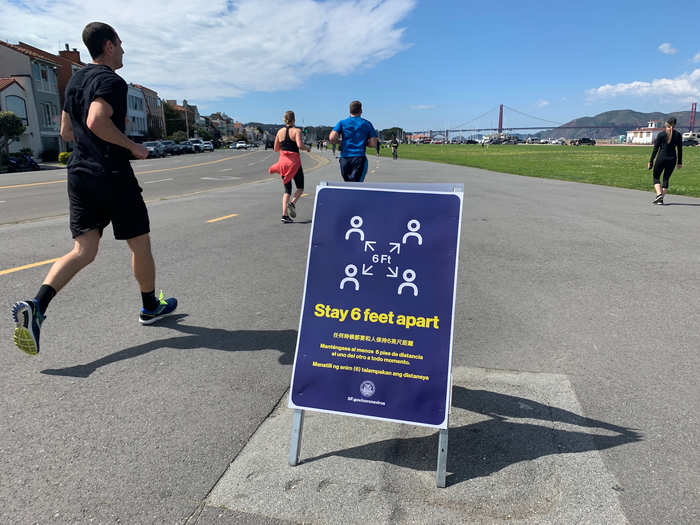
Breed took to a press conference Monday to reiterate to residents the importance of social distancing. She said if people continue to violate guidelines, the city will close its public parks.
"Sadly, in some of our parks and along our beaches we have noticed there are a lot of people taking this opportunity to have picnics," Breed said according to SF Gate. "This is not what this is about. For public safety we need people to comply."
So overall, people may be allowed to go outside for exercise and other essential activities, but city and health officials are advising residents to limit the number of unnecessary trips.
Some locales are merely closing nonessential businesses.
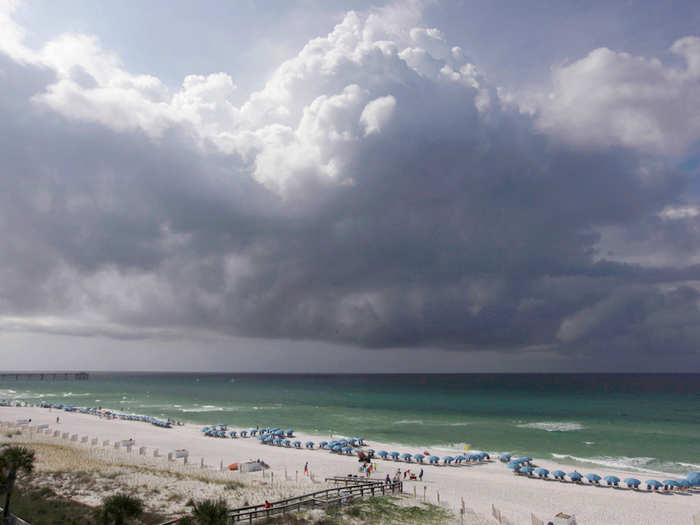
Florida shuttered nonessential businesses and has yet to call for a shelter-in-place. Residents are still allowed to go outside, but groups exceeding 10 people are not allowed on the state's beaches.
In short, "lockdown," "shelter-in-place," and "stay-at-home" are sometimes used interchangeably, but restrictions vary by each state, country, or city that is implementing one.
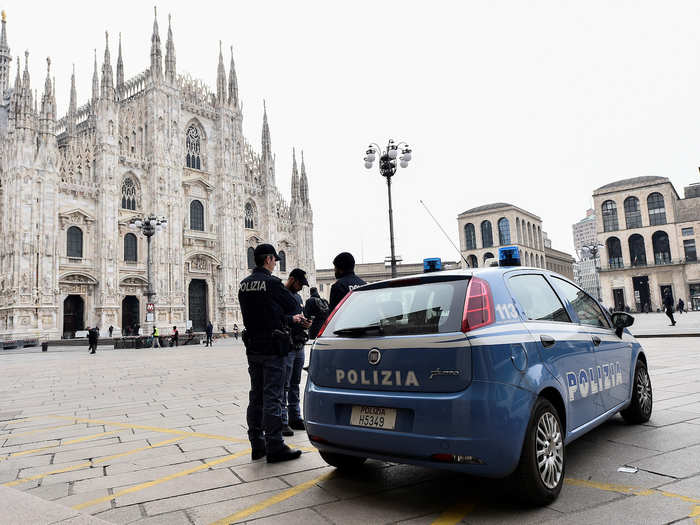
Popular Right Now
Popular Keywords
Advertisement